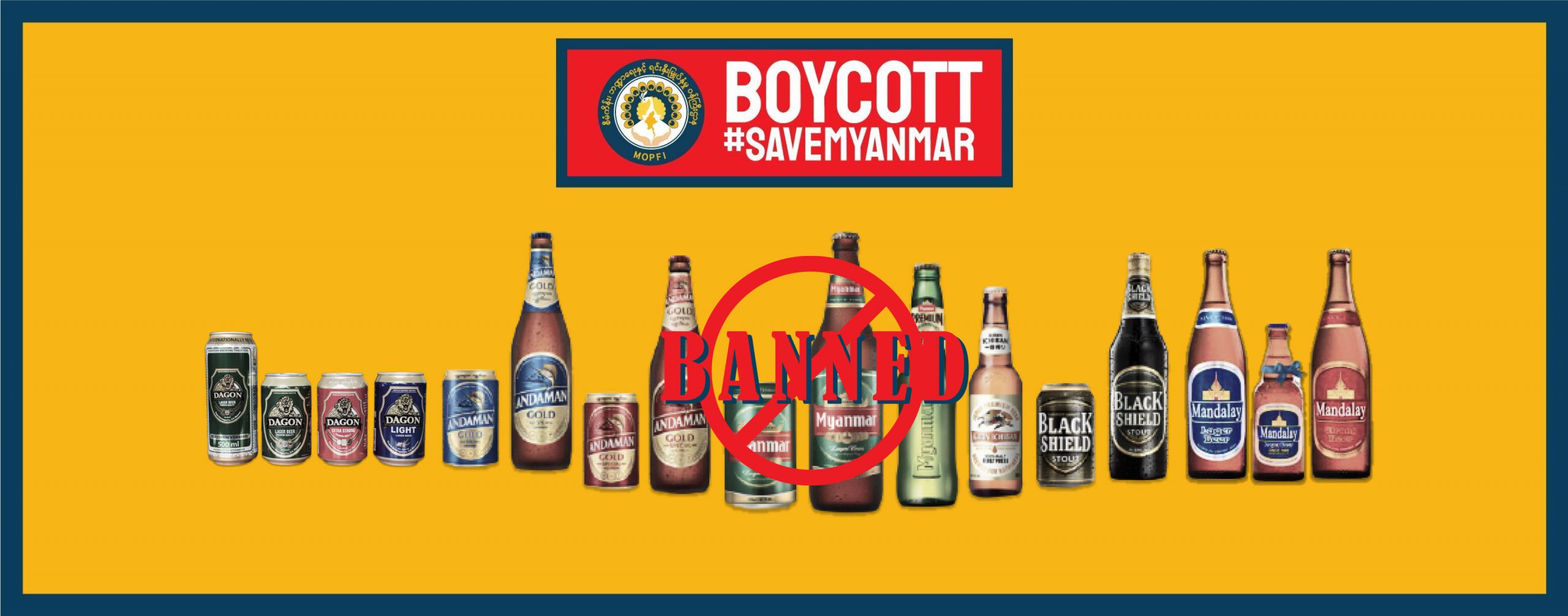Blood
Prominent Activist Calls for Public Boycott of Myanmar Junta’s ‘Blood’ Products
A prominent pro-democracy activist is calling on people within and outside Myanmar to open a new front in the war against Myanmar’s junta by boycotting eight products produced by companies it controls.
The boycott will help cut off funding to a regime that is using the money made from the sale of the products to massacre its own people, U Min Ko Naing, a leader of the 88 generation, said on Tuesday.
The boycott follows a report released in Geneva on Tuesday by UN investigators who said they had gathered strong evidence of surging war crimes in Myanmar, including mass executions and sexual violence, and were building case files to help bring the perpetrators to justice.
“The time has come for us to launch a war on the financial and economic [front] at the highest level, which will cut off all sources of income of the terrorist [junta],” he said, explaining that the boycott will show the strength of the people and will be implemented in steps.

The first step is to cut off the income the regime earns from the sale of alcohol, beer and cigarettes its companies produce, the activist said on his Facebook page.
The eight products are among those that provide the most “blood money [used to buy] weapons and ammunition [that is] killing our people,” he said, urging people of all ages and nationalities to join the boycott.
The initial stage of the boycott will last two months and its goal is to reduce sales of the eight products by 70 percent, U Min Ko Naing said.
The eight products are:
- Myanmar beer
- Andaman Gold beverages
- Dagon beer and beverages
- Mandalay beer and rum
- Black Shield Stout Beer
- Army Rum
- Red Ruby cigarettes
- Premium gold cigarettes
Ko Min Ko Naing is a member of the ’88 Generation student movement and a prominent democracy figure. He was imprisoned for 25 years after the 1988 pro-democracy uprising. He was awarded the Gwangju Prize for Human Rights in 2009. The prize is given by the May 18 Memorial Foundation in honor of the 1980 Gwangju Uprising against South Korean dictator Chun Doo-hwan, and those killed in the massacre that ensued. The uprising is considered by many South Koreans to be a pivotal event in their decades-long struggle for democracy.
Your Thoughts …

